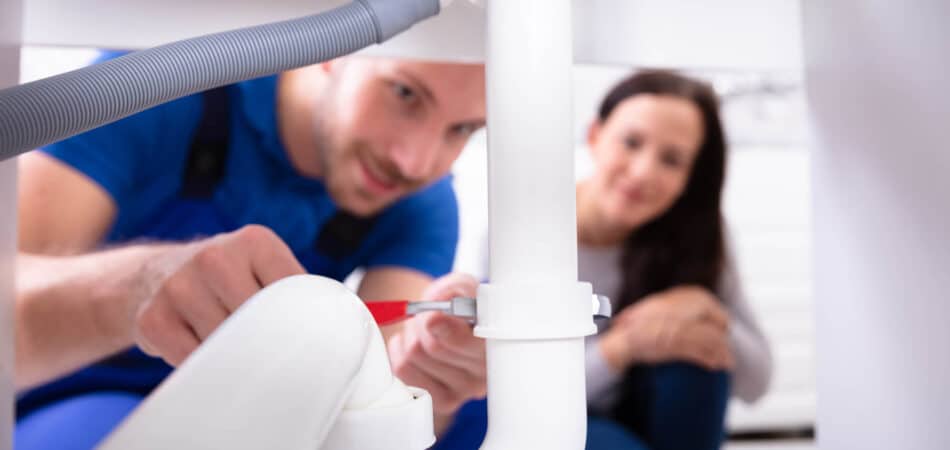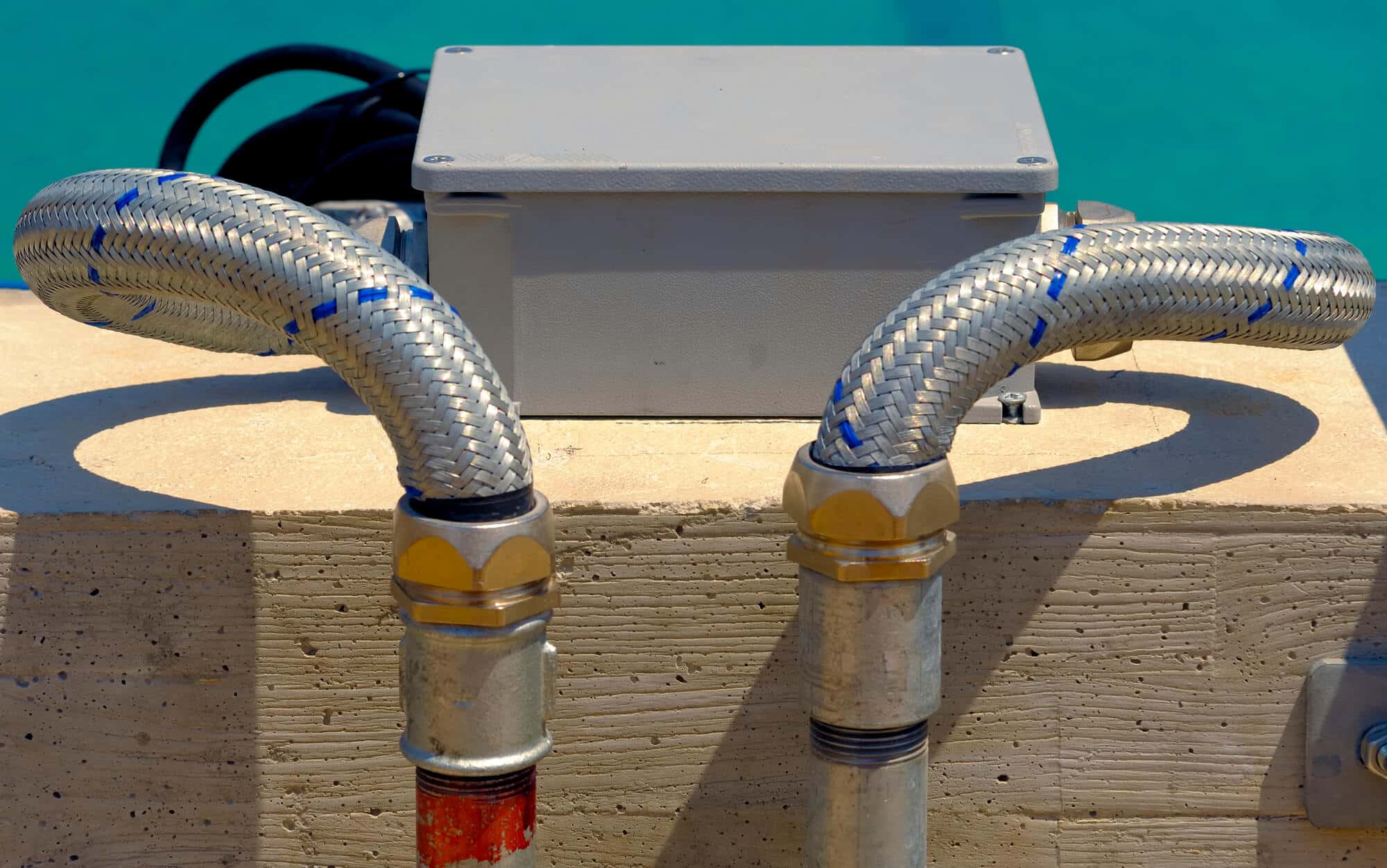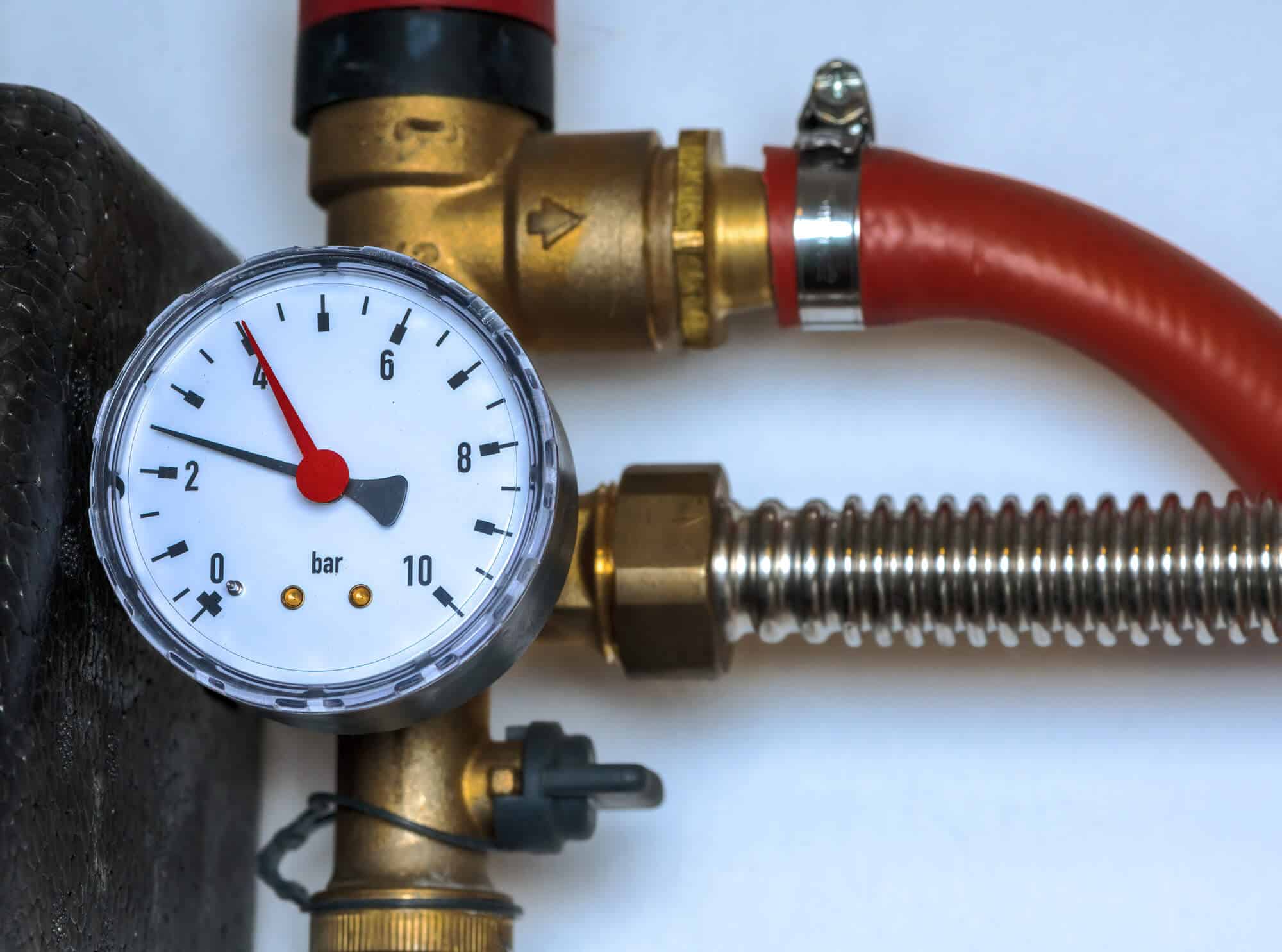
Opening HoursMonday to Fri: 9:am to 6pm
Talk to an Expert

Opening HoursMonday to Fri: 9:am to 6pm
Talk to an Expert

Maintaining a healthy plumbing system is crucial for the overall well-being of your home. But with all the pipes, fixtures, and drains, it can be overwhelming to know where to start.
In this blog post, we’ll provide you with essential tips and tricks to extend the lifespan of your plumbing system. From simple maintenance tasks to proactive measures, we’ll guide you through the process of keeping your pipes in top shape.
So, let’s dive in and discover how to make your plumbing system last for years to come.
When it comes to plumbing systems, choosing the right pipe material is crucial for ensuring its longevity and functionality.
Here are some of the most common types of pipe materials used in residential plumbing systems:
Copper pipes have been a popular choice for plumbing systems for decades due to their durability and resistance to corrosion. They are also known for their ability to withstand high temperatures and pressure. Copper pipes are often used for water supply lines and can last for up to 50 years with proper maintenance.
PVC (polyvinyl chloride) and PEX (cross-linked polyethylene) pipes are newer materials that have gained popularity in recent years. PVC pipes are affordable, lightweight, and easy to install, making them a popular choice for drain lines. PEX pipes, on the other hand, are flexible and can be used for both hot and cold water supply lines.

It is important to choose the right pipe material for your plumbing system based on your specific needs and budget. Regular maintenance and inspections can also help to ensure the longevity and functionality of your plumbing system.
Regular inspection and cleaning are crucial in maintaining the health of your plumbing system. A well-maintained plumbing system can save you money on costly repairs and replacements in the long run.
You can detect any visible signs of damage, leaks, or corrosion by conducting a visual inspection regularly. Look for cracks, leaks, and corrosion in the pipes, fittings, and fixtures. Check for any signs of water damage, such as water stains or mold growth.
A professional plumber can detect any potential problems that may affect the performance of your plumbing system. Schedule regular assessments with a professional plumber to identify any potential problems before they become major issues.
Regular cleaning can prevent clogs, corrosion, and other issues to your plumbing system. Use a mixture of baking soda and vinegar to clean your pipes. Pour the mixture down the drain and let it sit for a few hours before flushing it with hot water. You can also use a plunger to remove any clogs in the pipes.
To keep the pipes in good condition, preventive measures must be taken.
Here are some tips to maintain the plumbing system:

Chemicals used to clean the pipes can cause corrosion and weaken them pipes. It is best to avoid using harsh chemicals and instead opt for natural alternatives like baking soda and vinegar. Regular cleaning of the pipes can prevent the buildup of debris and clogs.
Extreme temperatures can cause the pipes to expand or contract, leading to cracks and leaks. Insulating the pipes can help regulate the temperature and prevent damage. Pipes in attics, basements, and crawl spaces are especially vulnerable to temperature changes and should be insulated.
Knowing when to upgrade pipes is crucial to the longevity and efficiency of your plumbing system. If you notice frequent leaks, low water pressure, or discoloration in your water, it may be time to upgrade your pipes. Additionally, if your pipes are old and made of materials such as galvanized steel or polybutylene, it is recommended to replace them as they are more prone to leaks and corrosion.
Opting for DIY pipe inspection might appear cost-effective, but it is important to consider the potential risks and complications that can arise from it.
Choose professional pipe inspection to guarantee accuracy, prevent future issues, and save on long-term repair costs. Additionally, professional plumbers have the expertise and knowledge to recommend the best materials and techniques for your specific plumbing system.
At Big Easy Plumbing Company, we stand out as your reliable partner for all your plumbing needs. With a commitment to exceptional service and years of expertise, we prioritize your satisfaction and the well-being of your home.
Our team of skilled professionals is dedicated to delivering efficient solutions, whether it’s fixing leaks, unclogging drains, or handling plumbing emergencies. Ready to experience dependable and quality plumbing? Contact us today, and let’s keep your plumbing in tip-top shape!
Water quality is crucial for pipe longevity. Hard water, for example, can lead to mineral buildup and corrosion. Installing water softeners or filters can help improve water quality and contribute to the maintenance of your plumbing system.
Older plumbing systems may benefit from more frequent inspections, pipe replacements as needed, and the installation of modern materials. Consult with a professional plumber to create a tailored maintenance plan for older plumbing.
In vacant properties, it’s essential to turn off the water supply, drain the pipes, and consider adding antifreeze to prevent freezing in colder climates. Regular check-ups and professional plumbing inspections are recommended for vacant properties.
To prevent corrosion, avoid using harsh chemical drain cleaners, ensure proper ventilation, and promptly address any leaks. Regularly monitor the condition of your pipes and consider installing corrosion-resistant materials if needed.
It’s advisable to conduct a visual inspection of your pipes at least once a year. However, if you notice any signs of issues such as leaks or reduced water flow, immediate attention and inspection are recommended.